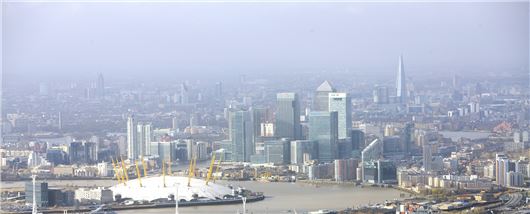Comment: Will cities become diesel-free zones?

Yesterday's announcement of surcharges for diesel vehicles entering a new ultra-low emissions zone in London might suggest company car drivers have been making the wrong choices.
Since 2002, when company car tax switched to a system based on a car's CO2 emissions instead of annual business mileage, the diesel share of the new car market in the UK has soared.
Certain vehicle manufacturers have been drawing attention to some of the problems with diesel emissions for many years - the problems and health risks associated with emissions of oxides of nitrogen (NOx) and diesel particulates.
Irnoically, those manufacturers that market alternatives to diesel on the basis that they are smokey and cause health problems can't ignore market realities and continue to offer them in most model ranges.
Modern petrol engine vehicles have much lower NOx emissions than diesel, and do not emit the particulate matter so often seen in dirty clouds billowing from the exhaust pipes of older diesel vehicles.
But with all the media hype it is easy to overlook a few key elements of the plan for London's new ultra-low emission zone.
The proposals will need to be signed off by the mayor of London following another election as they are set to be implemented in 2020. The current mayor is hoping the next one will have the same views as him on the matter.
The proposals offer an exemption for vehicles that comply with Euro 6 emissions standards. From September 2015, every new vehicle sold must comply with Euro 6 emissions rules.
Most company cars are on lifecycles of between three and five years. Therefore it is very unlikely that a company car driver in 2020 or later will be in a vehicle that does not comply with the new rules as the proposals stand.
There will be more plug-in hybrids and electric vehicles on the roads by then. There will be a much greater choice of ultra-low emission vehicles.
Even if more cities follow London's lead, as is likely to be the case, it will pose no greater threat to company car drivers or the businesses that operate them.
Ultimately the goal it to try to take more of the older, more polluting diesel vehicles off the road, and that has to be good news for everyone.

 Simon Harris
Simon Harris
 Honest John Awards 2017: Land Rover Discovery Sport named Most Popular SUV for second year in a row
Honest John Awards 2017: Land Rover Discovery Sport named Most Popular SUV for second year in a row
 2022 Smart #1 SUV: price, specs and release date
2022 Smart #1 SUV: price, specs and release date
 2023 Ferrari Purosangue SUV: Prices, specs and release date
2023 Ferrari Purosangue SUV: Prices, specs and release date
 Citroen DS3 Racing revealed
Citroen DS3 Racing revealed
 Infiniti adds diesel to the range
Infiniti adds diesel to the range
 Volvo XC90 chosen as SUV of the year at 2014 Honest John Awards
Volvo XC90 chosen as SUV of the year at 2014 Honest John Awards
 March new car registrations better than expected
March new car registrations better than expected

![2020 Mazda MX-5 2.0 [184] GT Sport Tech 2dr](http://images.honestjohn.co.uk/imagecache/url/crop/90x60/https/assets.heycar.co.uk/t_default-export/f_auto/application_assets/vehicles/pictures/fa4b1652a07a6810391fcb9e4498b39e/bbe2f7385186841d649cc864848f0dbb.jpg)
![2019 Vauxhall Astra Sports Tourer 1.4T 16V 150 Elite Nav 5dr [Start Stop]](http://images.honestjohn.co.uk/imagecache/url/crop/90x60/https/assets.heycar.co.uk/t_default-export/f_auto/application_assets/vehicles/pictures/238fdc53863ebf2c6064b189a2fbdaf1/ab7b348df8f53093a58096bbf15a6db5.jpg)


.jpg)






Add a comment